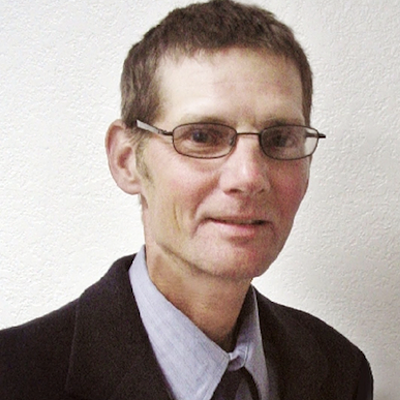That's why Bob Love, chief ranger at Saguaro, sounds a little puzzled when discussing a federal proposal that would allow people to carry loaded, concealed guns inside the park.
"It doesn't look to us that this law would help in preventing violent crime, because we don't have a lot of crime," he says. To reiterate his point, he says only one assault was reported in the park in 2007. Not bad for a park that saw 2.8 million people descend upon it last year.
The revamped gun regulations would allow loaded, concealed weapons to be carried into a number of national parks, monuments and wildlife refuges located in Arizona. If someone currently wants to bring a gun into, say, Organ Pipe Cactus National Monument or Buenos Aires National Wildlife Refuge, no problem--but it must be unloaded and stowed away properly, in a car trunk, for instance.
Lee Baiza, superintendent of Organ Pipe, is not gung-ho about changing the law.
"From our standpoint, visitors carrying weapons into the park will not necessarily make their visits safer," he says. "We are on the border, and a lot of illegal activities occur on a day-to-day basis, but as far as illegal activities toward visitors (are concerned), that's been minimal. I don't see where a new firearm policy would really help us in that venture."
The Department of Interior, the agency spearheading the changes, is taking public comments on the issue until June 30.
The existing regulations were enacted in 1983, during the Reagan administration. The current battle began in December of last year, when 47 U.S. senators, including Arizona's John McCain and Jon Kyl, sent a letter to Interior Secretary Dirk Kempthorne supporting the proposed reform.
It would dictate that national parks, monuments and wildlife refuges follow state gun laws. Since Arizona allows permitted, concealed weapons into state parks, the new law would also allow permitted, concealed weapons into the state's national parks. State gun laws already dictate what's allowed in Bureau of Land Management and U.S. Forest Service properties.
But gun laws are rarely simple. For example, concealed weapons in Arizona state parks are allowed, although they are prohibited in "approved recreation areas," such as campgrounds or picnic spots--but only if a park ranger asks for the weapon or requests that its owner vacate the area.
"Statutes for regulations in Arizona are a bit confusing. I can only imagine it's going to be confusing to visitors," Love says.
The National Rifle Association, the principal backer of this proposal, has been trying to get national-park gun rules revised for years, and doesn't believe confusion will arise. Opponents identify confusion as a principal reason for contesting the proposed changes. After all, each state has different gun regulations and reciprocity laws. Then there's the fact that some national parks encompass more than one state.
Rachel Parsons, a spokesperson for the NRA, isn't buying these claims.
"Gun owners are the most responsible people; they know the laws," she says. "Speaking from experience, they seek to know the gun laws."
The NRA's motive for pushing this is two-fold: consistency with state laws and giving gun owners the ability to protect themselves and their family.
"People are not immune from criminal attacks just because they're on park land," Parsons says, adding that Kempthorne testified before Congress that some parks have become havens for crime and drug trafficking.
While crime in parks, monuments and refuges does take place, opponents think the NRA's motivations lie elsewhere.
"This is not necessarily about guns and national parks; it's really more about politics," says Bryan Faehner, a Washington, D.C.-based legislative representative for the National Parks Conservation Association. "It's a good opportunity to push their agenda and political muscle in an election year. I don't think it's an accident they're doing this now."
The NRA's Parsons brushes these accusations off.
"This has nothing to do with politics and everything to do with law-abiding gun owners who have gone through all legal channels to carry their firearms," she says.
The National Parks Conservation Association is opposing the new regulations for various reasons: These areas are secure places; park funding is already in dire straits; the poaching of wildlife and resource destruction will increase; and while one regulation currently covers the entire park system, this change would make regulations vary state by state.
The Department of Interior isn't helping the situation either, its critics say. In 1983, the public-comment period was four months long; this go-round lasts only two months. And no federal environmental analysis is happening.
"People are commenting in a void right now, so I don't think the Department (of Interior) did a good job on that at all," says Bill Wade, a Tucson resident and retired park superintendent. "If you go back in the history of the park service, we think this regulation (as it stands now) has worked."
Wade knows his national parks. He worked as a law-enforcement ranger in the Grand Canyon and Yosemite before taking the reins as superintendent of Shenandoah National Park in Virginia for nine years. Wade is now the chair of the executive council for the Coalition of National Park Service Retirees, an advocacy group consisting of more than 650 former park-service employees.
On May 22, Democratic Arizona Congressman Raúl Grijalva sent a stern letter to Kempthorne asking him to abandon the proposal. The chairman of the Subcommittee on National Parks, Forests and Public Lands, Grijalva wrote, the "assertion that the proposed rule will promote resource protection is laughable." He also claimed the new regulations are just pandering to the NRA, "an interest group with no interest in national parks."
Faehner, of the NPCA, claims a lot more park rangers would be needed to enforce the change.
"What comes with this proposal is a bureaucratic nightmare for the parks, for visitors and personnel alike. It's ridiculous; talk about government red tape," he says. "... National parks are becoming a political football for gun politics in this country, that's just unfortunate."











